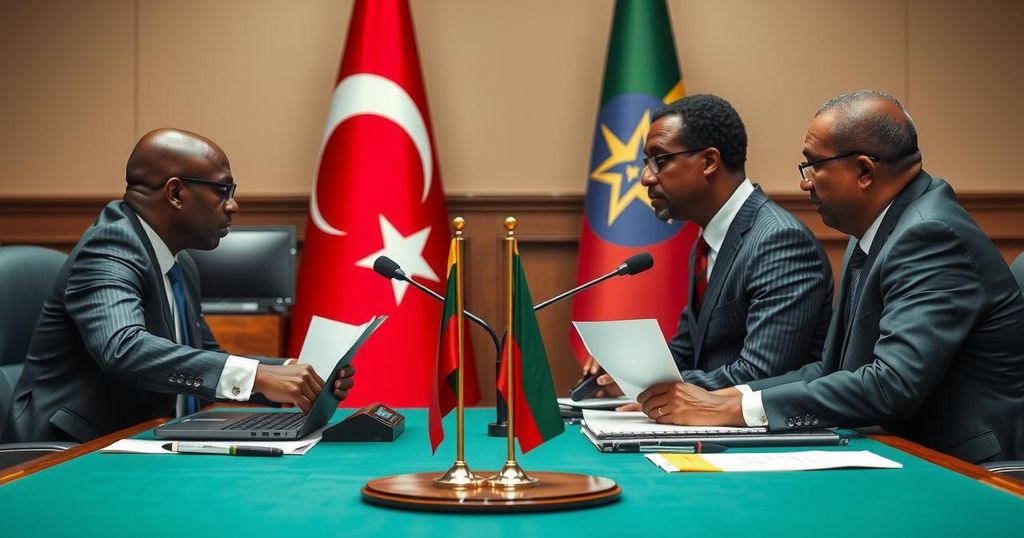Ethiopia and Somalia Reach Peace Agreement Through Turkish Mediation
Ethiopia and Somalia have reached a peace agreement to resolve their year-long conflict, facilitated by Turkish President Recep Tayyip Erdogan. The tensions arose after Ethiopia formed an agreement with Somaliland, complicating its relationship with Somalia. This development is viewed as a significant diplomatic step forward.
Ethiopia and Somalia have successfully negotiated an agreement to resolve a protracted dispute, lasting almost a year, with mediation from Turkish President Recep Tayyip Erdogan. The tensions arose primarily after Ethiopia entered into a deal with Somaliland, granting it access to the sea, which exacerbated relations with Somalia. This development marks a significant step towards diplomatic resolution in the Horn of Africa, indicating a potential thaw in relations between the two nations, historically beset by conflicts over borders and resource allocation.
The conflict between Ethiopia and Somalia has deep historical roots, primarily revolving around territorial disputes and access to maritime resources. Ethiopia, being a landlocked nation, sought to enhance its economic prospects by establishing a relationship with Somaliland. This strained its interactions with Somalia, a neighboring country that feels threatened by Ethiopia’s growing influence in the region. Mediation by Turkey’s leadership illustrates the complex dynamics of international diplomacy in the Horn of Africa, as external powers seek to foster peace in a historically volatile area.
The recent agreement brokered by Turkey exemplifies proactive international diplomacy aimed at resolving longstanding regional disputes. As Ethiopia and Somalia work toward reconciliation, the involvement of a third party, such as Turkey, underscores the necessity of collaborative efforts in achieving lasting peace. The outcome of this negotiation could serve as a blueprint for managing similar conflicts in the Horn of Africa, thus promoting stability in the region.
Original Source: www.dw.com




Post Comment